#the knockout 1914
Explore tagged Tumblr posts
Text
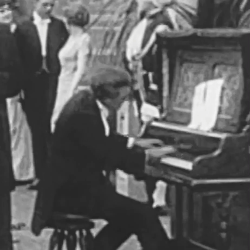
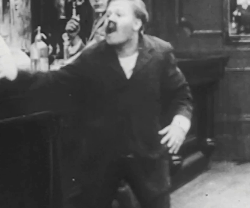
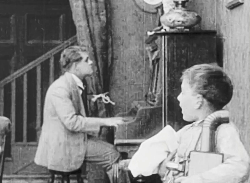
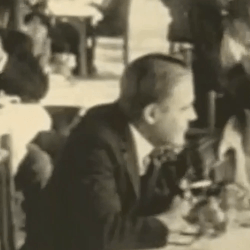

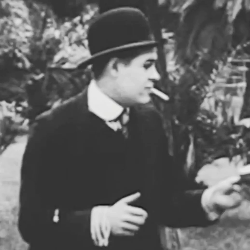






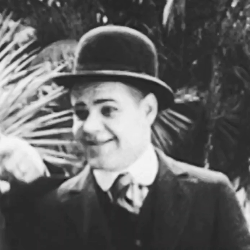
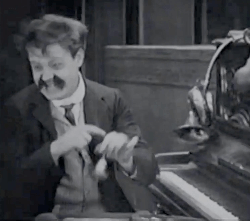


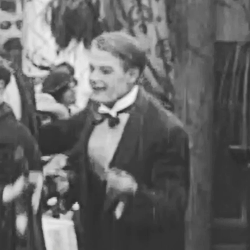
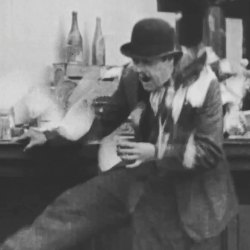
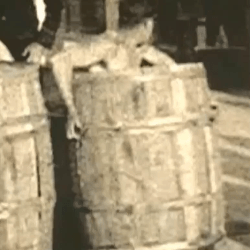
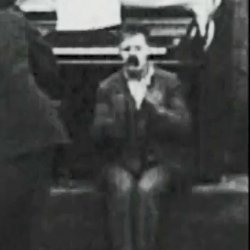
Harry Hewitt McCoy (1893-1937)
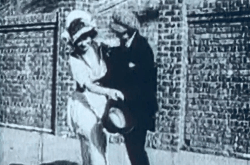
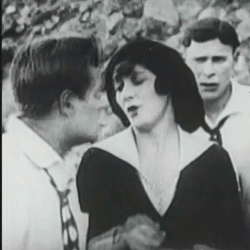


#harry mccoy#mabel and fatty's wash day 1915#mabel's blunder 1914#those bitter sweets 1915#dirty work in a laundry 1915#fatty's magic pants 1914#a close shave 1920#a movie star 1916#fatty's chance acquaintance 1915#getting acquainted 1914#mabel's busy day 1914#mabel's strange predicament 1914#the garage 1920#making a living 1914#that little band of gold 1915#we'll get you yet 1921#the masquerader 1914#tillie's punctured romance 1914#her torpedoed love 1917#the knockout 1914#fatty's reckless fling 1915#the star boarder 1914#circus heroes 1921#fatty's faithful fido 1915#favorite#my edwardian man
2 notes
·
View notes
Text
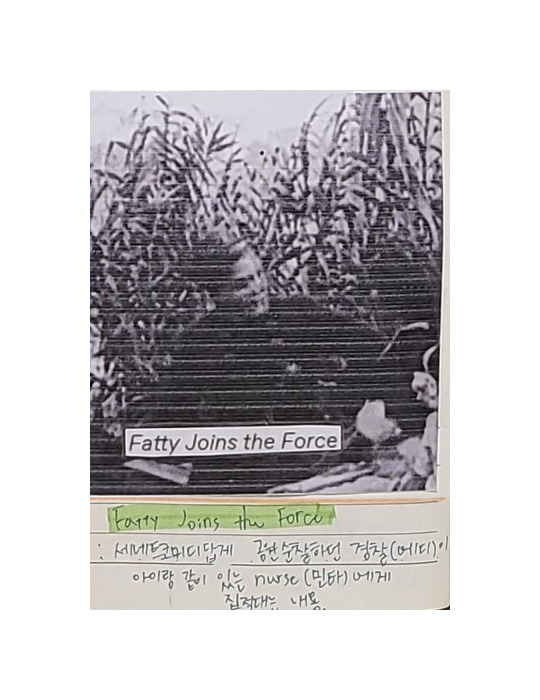
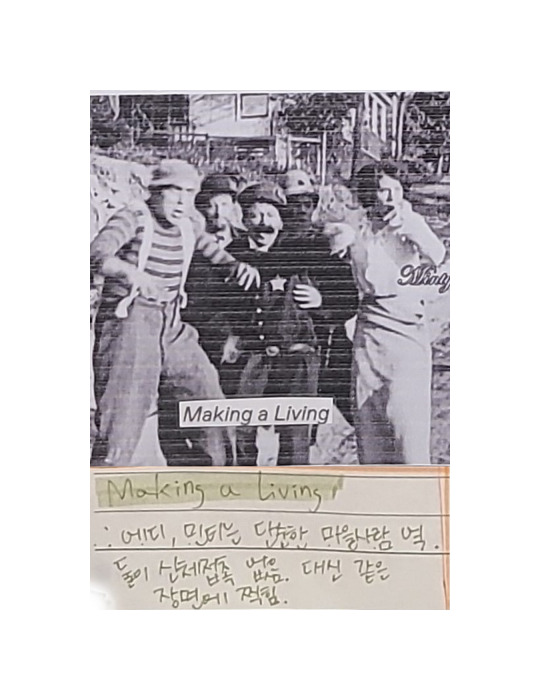
released in Nov 24, 1913 / released in Feb 2, 1914
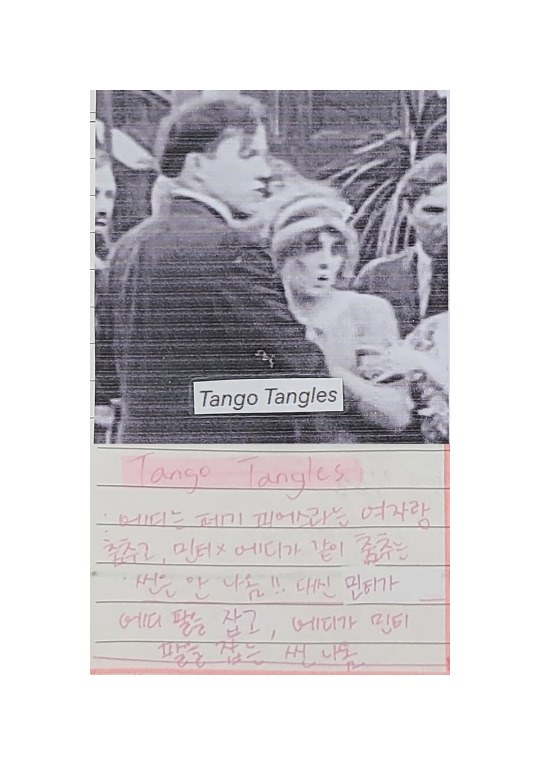
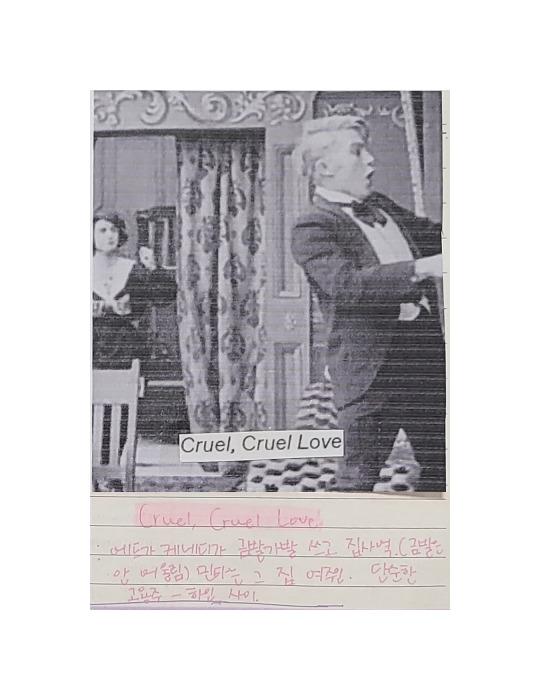
released in Mar 9, 1914 / released in Mar 26, 1914
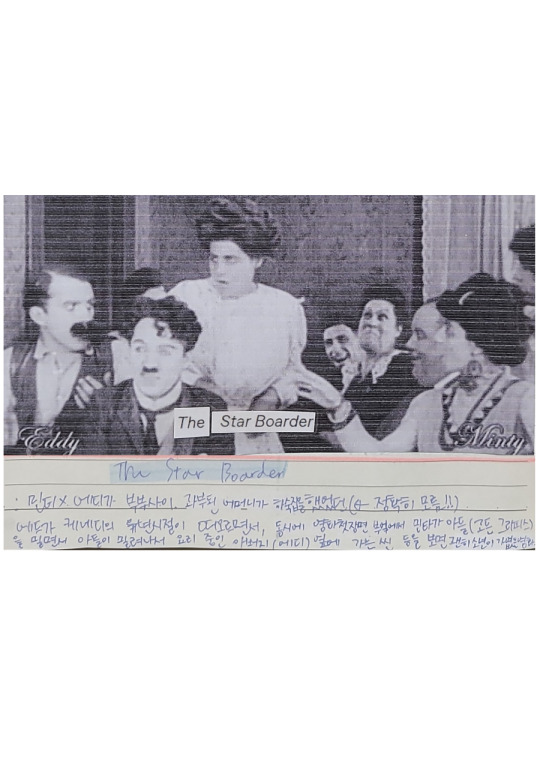
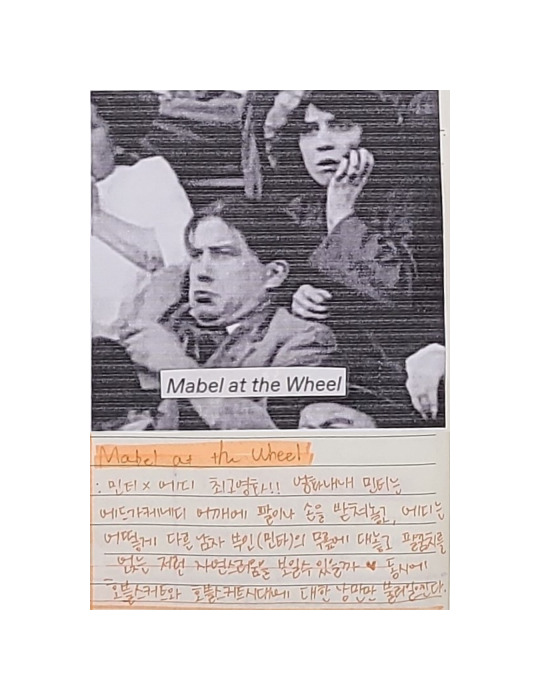
released in Apr 4, 1914 / released in Apr 18, 1914
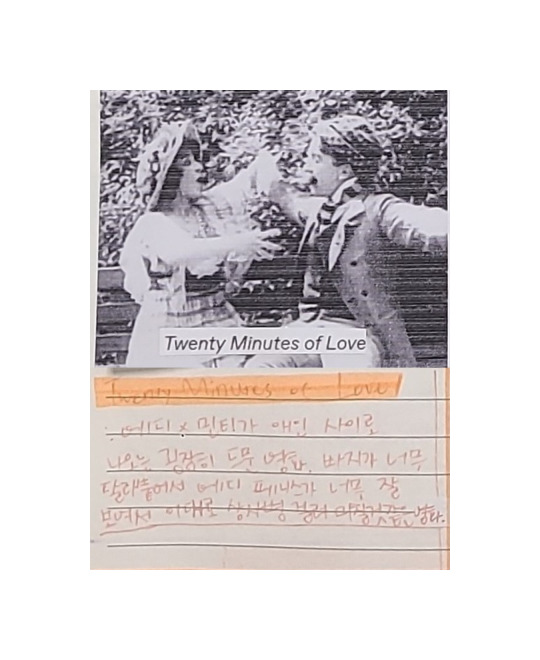
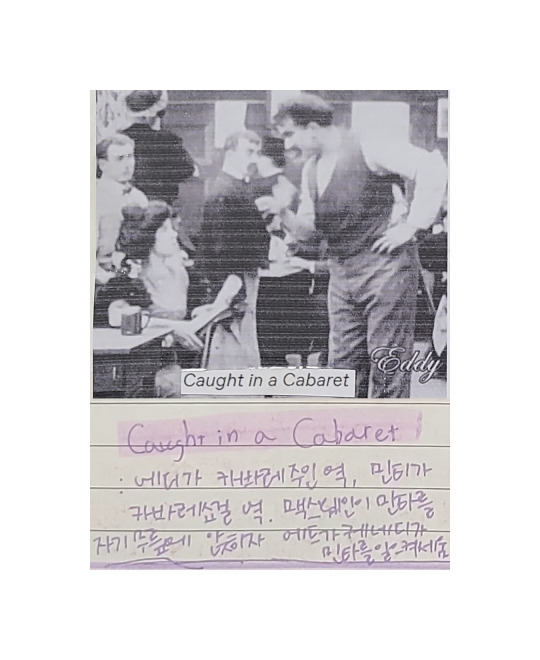
released in Apr 20, 1914 / released in Apr 27, 1914
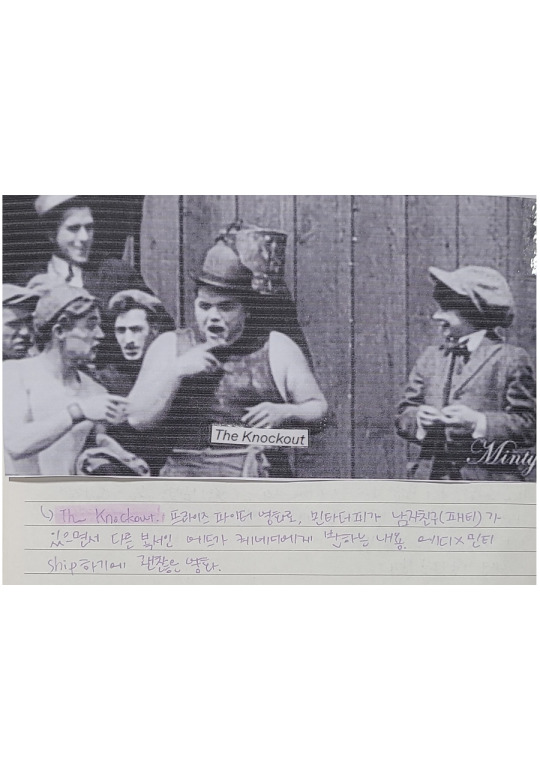
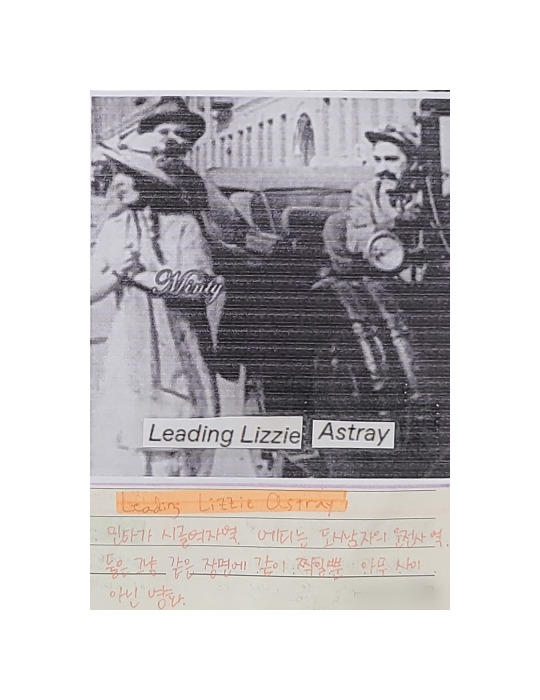
released in Jun 11, 1914 / released in Nov 30, 1914

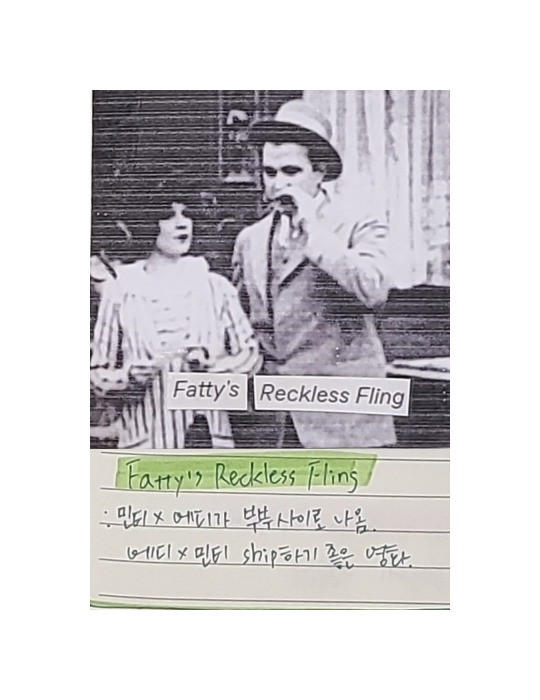
released in Dec 12, 1914 / released in Mar 4, 1915
#edgar kennedy#minta durfee#fatty joins the force 1913#making a living 1914#tango tangles 1914#cruel cruel love 1914#the star boarder 1914#mabel at the wheel 1914#twenty minutes of love 1914#caught in a cabaret 1914#the knockout 1914#leading lizzie astray 1914#ambrose's first falsehood 1914#fatty's reckless fling 1915#eddy x minty: still attractive vintage keystone dreams
0 notes
Text
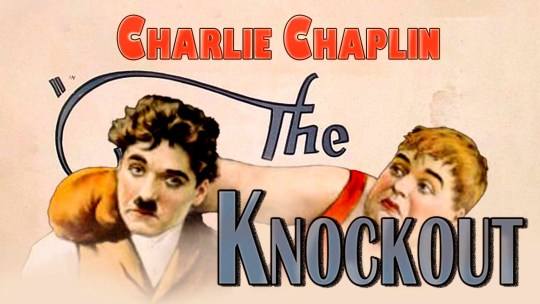

"The Knockout" 1914
The second poster shows retitled "Counted Out" originally called "Knockout".
Technically this is a Roscoe Arbuckle film (Charlie is in it as a referee for approx. 2.5 minutes). But like others (Tillie’s Punctured Romance - Marie Dressler was the star) once Charlie attained worldwide fame, to cash in it would appear they were Chaplin starring vehicles.
14 notes
·
View notes
Text

John Henry Lewis started boxing professionally at the age of 14 and he managed to put together a spectacular career and leave the game while still a young man. Lewis was a hall of fame American boxer who held the World Light Heavyweight Boxing Title from 1935 to 1938.
He had a total of 117 fights of which he won 103 with 60 by knockout. He lost 11 times and Joe Louis was the only man to stop him. He also had five draws. On the way up he fought Light Heavyweight Champion Maxie Rosenbloom five times, winning two and losing three. In their third fight Lewis dropped Rosenbloom five times.
John Henry Lewis was born on May 1, 1914 in Los Angeles, California and died on April 18, 1974 in Berkeley, California at the age of 59.
#john lewis Henry#love#boxing#hall of fame#light heavyweight#joe louis#maxie rosenbloom#california#boxing legend#black lives
13 notes
·
View notes
Text

Roscoe "Fatty" Arbuckle-Minta Durfee "Charlot, árbitro" (The knockout) 1914, de Mack Sennett.
7 notes
·
View notes
Text

Joseph Louis Barrow (May 13, 1914 – April 12, 1981), known as Joe Louis, was the second African American heavyweight boxing champion in the 20th Century. He was born in Chambers County Alabama to sharecropper parents Monroe and Lilly Reese Barrow. He was the seventh of eight children, the family migrated to Detroit.
He began boxing at Brewster’s East Side Gymnasium in Detroit. He entered the Golden Gloves finals in 1933 as a light heavyweight and became the champion in his weight class. He turned professional in 1934. He won a remarkable 12 bouts in his first year as a professional. He became an icon for African Americans and a hero to many white Americans.
He won his first 27 fights—all but four by knockout. He defeated such heavyweight greats as Primo Carnera, Stanley Poreda, Natie Brown, and Max Baer. Known as the “Brown Bomber,” his most memorable encounters were his matches against German champion Max Schmeling. Schmeling knocked him out for the first time in his career.
He began a 12-year reign as heavyweight champion by knocking out James Braddock. A rematch with Schmeling occurred in June 1938 which, despite the wishes of the fighters, became a symbol of the growing political conflict between Germany and the US. He knocked Schmeling out in the first round and became a national hero.
During WWII, he enlisted in the Army. He served his country by participating in exhibition matches to raise money for the military and to boost soldier morale. He returned to the ring in 1946 and defended his title four times, including consecutive victories against “Jersey” Joe Walcott. He retired in 1949, as the undefeated heavyweight champ. In 1950, he attempted to recapture his title in a bout against Ezzard Charles, but he was handed a loss. He challenged the next champion, Rocky Marciano, and during the 8th round of the bout, Marciano knocked him through the ropes. This was his final time in the ring.
He was married four times, he had two biological children, and adopted three other children. President Ronald Reagan ordered the veteran buried in Arlington National Cemetery with full military honors. #africanhistory365 #africanexcellence
1 note
·
View note
Photo

257. Dois Heróis (The Knockout, 1914), dir. Mack Sennett
#cinema#mack sennett#roscoe 'fatty' arbuckle#charles chaplin#american movies#1910s movies#short movie#classic movies#black and white movies#silent movies#comedy#boxing#slapstick comedy#physical comedy#cinema icons#cinefilos
3 notes
·
View notes
Text
Summer Under The Stars, Day 08
Charlie Chaplin
My Pick: THE GOLD RUSH (1925) - 9:30 a.m.
Two I Haven’t Seen: THE ROUNDERS / THE KNOCKOUT (1914) - 6:00 a.m.
6 notes
·
View notes
Text
Joe Louis

Joseph Louis Barrow (May 13, 1914 – April 12, 1981), known professionally as Joe Louis, was an American professional boxer who competed from 1934 to 1951. He reigned as the world heavyweight champion from 1937 to 1949, and is considered to be one of the greatest heavyweight boxers of all time. Nicknamed the Brown Bomber, Louis' championship reign lasted 140 consecutive months, during which he participated in 26 championship fights. The 27th fight, against Ezzard Charles in 1950, was a challenge for Charles' heavyweight title and so is not included in Louis' reign. He was victorious in 25 consecutive title defenses. In 2005, Louis was ranked as the best heavyweight of all time by the International Boxing Research Organization, and was ranked number one on The Ring magazine's list of the "100 greatest punchers of all time".
Louis' cultural impact was felt well outside the ring. He is widely regarded as the first person of African-American descent to achieve the status of a nationwide hero within the United States, and was also a focal point of anti-Nazi sentiment leading up to and during World War II. He was instrumental in integrating the game of golf, breaking the sport's color barrier in America by appearing under a sponsor's exemption in a PGA event in 1952.
Detroit's Joe Louis Greenway and the Forest Preserve District of Cook County's Joe Louis "The Champ" Golf Course, situated south of Chicago in Riverdale, Illinois, are named in his honor.
Early life
Born in rural Chambers County, Alabama (in a ramshackle dwelling on Bell Chapel Road, located about 1 mile (2 kilometres) off state route 50 and roughly 6 miles (10 kilometres) from LaFayette), Louis was the seventh of eight children of Munroe Barrow and Lillie (Reese) Barrow. He weighed 11 pounds (5 kg) at birth. Both of his parents were children of former slaves, alternating between sharecropping and rental farming. Munroe was predominantly African American, with some white ancestry, while Lillie was half Cherokee.
Louis spent the first dozen years growing up in rural Alabama, where little is known of his childhood. He suffered from a speech impediment and spoke very little until about the age of six. Munroe Barrow was committed to a mental institution in 1916 and, as a result, Joe knew very little of his biological father. Around 1920, Louis's mother married Pat Brooks, a local construction contractor, having received word that Munroe Barrow had died while institutionalized (in reality, Munroe Barrow lived until 1938, unaware of his son's fame).
In 1926, shaken by a gang of white men in the Ku Klux Klan, Louis's family moved to Detroit, Michigan, forming part of the post-World War I Great Migration. Joe's brother worked for Ford Motor Company (where Joe would himself work for a time at the River Rouge Plant) and the family settled into a home at 2700 Catherine (now Madison) Street in Detroit's Black Bottom neighborhood.
Louis attended Bronson Vocational School for a time to learn cabinet-making.
Amateur career
The Great Depression hit the Barrow family hard, but as an alternative to gang activity, Joe began to spend time at a local youth recreation center at 637 Brewster Street in Detroit. His mother attempted to get him interested in playing the violin. A classic story is that he tried to hide his pugilistic ambitions from his mother by carrying his boxing gloves inside his violin case.
Louis made his debut in early 1932 at the age of 17. Legend has it that before the fight, the barely literate Louis wrote his name so large that there was no room for his last name, and thus became known as "Joe Louis" for the remainder of his boxing career. More likely, Louis simply omitted his last name to keep his boxing a secret from his mother. After this debut—a loss to future Olympian Johnny Miler—Louis compiled numerous amateur victories, eventually winning the club championship of his Brewster Street recreation centre, the home of many aspiring Golden Gloves fighters.
In 1933, Louis won the Detroit-area Golden Gloves Novice Division championship against Joe Biskey for the light heavyweight classification. He later lost in the Chicago Golden Gloves Tournament of Champions. The next year, competing in the Golden Gloves' Open Division, he won the light heavyweight classification, this time also winning the Chicago Tournament of Champions. However, a hand injury forced Louis to miss the New York/Chicago Champions' cross-town bout for the ultimate Golden Gloves championship. In April 1934, he followed up his Chicago performance by winning the United States Amateur Champion National AAU tournament in St. Louis, Missouri.
By the end of his amateur career, Louis's record was 50–3, with 43 knockouts.
Professional career
Joe Louis had only three losses in his 69 professional fights. He tallied 52 knockouts and held the championship from 1937 to 1949, the longest span of any heavyweight titleholder. After returning from retirement, Louis failed to regain the championship in 1950, and his career ended after he was knocked out by Rocky Marciano in 1951.
Early years
Louis's amateur performances attracted the interest of professional promoters, and he was soon represented by a black Detroit-area bookmaker named John Roxborough. As Louis explained in his autobiography, Roxborough convinced the young fighter that white managers would have no real interest in seeing a black boxer work his way up to title contention:
[Roxborough] told me about the fate of most black fighters, ones with white managers, who wound up burned-out and broke before they reached their prime. The white managers were not interested in the men they were handling but in the money they could make from them. They didn't take the proper time to see that their fighters had a proper training, that they lived comfortably, or ate well, or had some pocket change. Mr. Roxborough was talking about Black Power before it became popular.
Roxborough knew a Chicago area boxing promoter named Julian Black who already had a stable of mediocre boxers against which Louis could hone his craft, this time in the heavyweight division. After becoming part of the management team, Black hired fellow Chicago native Jack "Chappy" Blackburn as Louis's trainer. Louis' initial professional fights were all in the Chicago area, his professional debut coming on July 4, 1934, against Jack Kracken in the Bacon Casino on Chicago's south side. Louis earned $59 for knocking out Kracken in the first round. $59.00 in 1934 is equivalent to $1,148.60 in 2020 dollars. Louis won all 12 of his professional fights that year, 10 by knockout.
In September 1934, while promoting a Detroit-area "coming home" bout for Louis against Canadian Alex Borchuk, Roxborough was pressured by members of the Michigan State Boxing Commission to have Louis sign with white management. Roxborough refused and continued advancing Louis's career with bouts against heavyweight contenders Art Sykes and Stanley Poreda.
When training for a fight against Lee Ramage, Louis noticed a young female secretary for the black newspaper at the gym. After Ramage was defeated, the secretary, Marva Trotter, was invited to the celebration party at Chicago's Grand Hotel. Trotter later became Louis's first wife in 1935.
During this time, Louis also met Truman Gibson, the man who would become his personal lawyer. As a young associate at a law firm hired by Julian Black, Gibson was charged with personally entertaining Louis during the pendency of business deals.
Title contention
Although Louis' management was finding him bouts against legitimate heavyweight contenders, no path to the title was forthcoming. While professional boxing was not officially segregated, many white Americans had become wary of the prospect of another black champion in the wake of Jack Johnson's highly unpopular (among whites) "reign" atop the heavyweight division. During an era of severe anti-black repression, Jack Johnson's unrepentant masculinity and marriage to a white woman engendered an enormous backlash that greatly limited opportunities of black fighters in the heavyweight division. Black boxers were denied championship bouts, and there were few heavyweight black contenders at the time, though there were African Americans who fought for titles in other weight divisions, and a few notable black champions, such as Tiger Flowers. Louis and his handlers would counter the legacy of Johnson by emphasizing the Brown Bomber's modesty and sportsmanship. Biographer Gerald Astor stated that "Joe Louis' early boxing career was stalked by the specter of Jack Johnson".
If Louis were to rise to national prominence among such cultural attitudes, a change in management would be necessary. In 1935, boxing promoter Mike Jacobs sought out Louis' handlers. After Louis' narrow defeat of Natie Brown on March 29, 1935, Jacobs and the Louis team met at the Frog Club, a black nightclub, and negotiated a three-year exclusive boxing promotion deal. The contract, however, did not keep Roxborough and Black from attempting to cash in as Louis' managers; when Louis turned 21 on May 13, 1935, Roxborough and Black each signed Louis to an onerous long-term contract that collectively dedicated half of Louis' future income to the pair.
Black and Roxborough continued to carefully and deliberately shape Louis' media image. Mindful of the tremendous public backlash Johnson had suffered for his unapologetic attitude and flamboyant lifestyle, they drafted "Seven Commandments" for Louis' personal conduct. These included:
Never have his picture taken with a white woman
Never gloat over a fallen opponent
Never engage in fixed fights
Live and fight clean
As a result, Louis was generally portrayed in the white media as a modest, clean-living person, which facilitated his burgeoning celebrity status.
With the backing of major promotion, Louis fought thirteen times in 1935. The bout that helped put him in the media spotlight occurred on June 25, when Louis knocked out 6'6", 265-pound former world heavyweight champion Primo Carnera in six rounds. Foreshadowing the Louis–Schmeling rivalry to come, the Carnera bout featured a political dimension. Louis' victory over Carnera, who symbolized Benito Mussolini's regime in the popular eye, was seen as a victory for the international community, particularly among African Americans, who were sympathetic to Ethiopia, which was attempting to maintain its independence by fending off an invasion by fascist Italy. America's white press began promoting Louis' image in the context of the era's racism; nicknames they created included the "Mahogany Mauler", "Chocolate Chopper", "Coffee-Colored KO King", "Safari Sandman", and one that stuck: "The Brown Bomber".
Helping the white press to overcome its reluctance to feature a black contender was the fact that in the mid-1930s boxing desperately needed a marketable hero. Since the retirement of Jack Dempsey in 1929, the sport had devolved into a sordid mixture of poor athletes, gambling, fixed fights, thrown matches, and control of the sport by organized crime. New York Times Columnist Edward Van Ness wrote, "Louis ... is a boon to boxing. Just as Dempsey led the sport out of the doldrums ... so is Louis leading the boxing game out of a slump." Likewise, biographer Bill Libby asserted that "The sports world was hungry for a great champion when Louis arrived in New York in 1935."
While the mainstream press was beginning to embrace Louis, many still opposed the prospect of another black heavyweight champion. In September 1935, on the eve of Louis' fight with former titleholder Max Baer, Washington Post sportswriter Shirley Povich wrote about some Americans' hopes for the white contender, "They say Baer will surpass himself in the knowledge that he is the lone white hope for the defense of Nordic superiority in the prize ring." However, the hopes of white suprematists would soon be dashed.
Although Baer had been knocked down only once before in his professional career (by Frankie Campbell), Louis dominated the former champion, knocking him out in the fourth round. Unknowingly, Baer suffered from a unique disadvantage in the fight; earlier that evening, Louis had married Marva Trotter at a friend's apartment and was eager to end the fight in order to consummate the relationship. Later that year, Louis also knocked out Paolino Uzcudun, who had never been knocked down before.
Louis vs. Schmeling I
By this time, Louis was ranked as the No. 1 contender in the heavyweight division and had won the Associated Press' "Athlete of the Year" award for 1935. What was considered to be a final tune-up bout before an eventual title shot was scheduled for June 1936 against Max Schmeling. Although a former world heavyweight champion, Schmeling was not considered a threat to Louis, then with a professional record of 27–0. Schmeling had won his title on a technicality when Jack Sharkey was disqualified after giving Schmeling a low blow in 1930. Schmeling was also 30 years old at the time of the Louis bout and allegedly past his prime. Louis' training retreat was located at Lakewood, New Jersey, where he was first able to practice the game of golf, which would later become a lifelong passion. Noted entertainer Ed Sullivan had initially sparked Louis' interest in the sport by giving an instructional book to Joe's wife Marva. Louis spent significant time on the golf course rather than training for the match.
Conversely, Schmeling prepared intently for the bout. He had thoroughly studied Louis's style and believed he had found a weakness. By exploiting Louis's habit of dropping his left hand low after a jab, Schmeling handed Louis his first professional loss by knocking him out in round 12 at Yankee Stadium on June 19, 1936.
World championship
After defeating Louis, Schmeling expected a title shot against James J. Braddock, who had unexpectedly defeated Max Baer for the heavyweight title the previous June. Madison Square Garden (MSG) had a contract with Braddock for the title defense and also sought a Braddock–Schmeling title bout. But Jacobs and Braddock's manager Joe Gould had been planning a Braddock–Louis matchup for months.
Schmeling's victory gave Gould tremendous leverage, however. If he were to offer Schmeling the title chance instead of Louis, there was a very real possibility that Nazi authorities would never allow Louis a shot at the title. Gould's demands were therefore onerous: Jacobs would have to pay 10% of all future boxing promotion profits (including any future profits from Louis's future bouts) for ten years. Braddock and Gould would eventually receive more than $150,000 from this arrangement. Well before the actual fight, Jacobs and Gould publicly announced that their fighters would fight for the heavyweight title on June 22, 1937. Figuring that the New York State Athletic Commission would not sanction the fight in deference to MSG and Schmeling, Jacobs scheduled the fight for Chicago.
Each of the parties involved worked to facilitate the controversial Braddock–Louis matchup. Louis did his part by knocking out former champion Jack Sharkey on August 18, 1936. Meanwhile, Gould trumped up anti-Nazi sentiment against Schmeling, and Jacobs defended a lawsuit by MSG to halt the Braddock–Louis fight. A federal court in Newark, New Jersey, eventually ruled that Braddock's contractual obligation to stage his title defense at MSG was unenforceable for lack of mutual consideration.
The stage was set for Louis's title shot. On the night of the fight, June 22, 1937, Braddock was able to knock Louis down in round one, but afterward could accomplish little. After inflicting constant punishment, Louis defeated Braddock in round eight, knocking him out cold with a strong right hand that busted James' teeth through his gum shield and lip and sent him to the ground for a few minutes. It was the first and only time that Braddock was knocked out (the one other stoppage of Braddock's career was a TKO due to a cut). Louis's ascent to the world heavyweight championship was complete.
Louis's victory was a seminal moment in African American history. Thousands of African Americans stayed up all night across the country in celebration. Noted author and member of the Harlem Renaissance Langston Hughes described Louis's effect in these terms:
Each time Joe Louis won a fight in those depression years, even before he became champion, thousands of black Americans on relief or W.P.A., and poor, would throng out into the streets all across the land to march and cheer and yell and cry because of Joe's one-man triumphs. No one else in the United States has ever had such an effect on Negro emotions—or on mine. I marched and cheered and yelled and cried, too.
Initial title defenses
Despite his championship, Louis was haunted by the earlier defeat to Schmeling. Shortly after winning the title, he was quoted as saying, "I don't want to be called champ until I whip Max Schmeling." Louis's manager Mike Jacobs attempted to arrange a rematch in 1937, but negotiations broke down when Schmeling demanded 30% of the gate. When Schmeling instead attempted to arrange for a fight against British Empire champion Tommy Farr, known as the "Tonypandy Terror",—ostensibly for a world championship to rival the claims of American boxing authorities—Jacobs outmaneuvered him, offering Farr a guaranteed $60,000 to fight Louis instead. The offer was too lucrative for Farr to turn down.
On August 30, 1937, after a postponement of four days due to rain, Louis and Farr finally touched gloves at New York's Yankee Stadium before a crowd of approximately 32,000. Louis fought one of the hardest battles of his life. The bout was closely contested and went the entire 15 rounds, with Louis being unable to knock Farr down. Referee Arthur Donovan was even seen shaking Farr's hand after the bout, in apparent congratulation. Nevertheless, after the score was announced, Louis had won a controversial unanimous decision. Time described the scene thus: "After collecting the judges' votes, referee Arthur Donovan announced that Louis had won the fight on points. The crowd of 50,000 ... amazed that Farr had not been knocked out or even knocked down, booed the decision."
It seems the crowd believed that referee Arthur Donovan, Sr. had raised Farr's glove in victory. Seven years later, in his published account of the fight, Donovan spoke of the "mistake" that may have led to this confusion. He wrote:
As Tommy walked back to his corner after shaking Louis' hand, I followed him and seized his glove. "Tommy, a wonderful perform—" I began ... Then I dropped his hand like a red-hot coal! He had started to raise his arm. He thought I had given him the fight and the world championship! I literally ran away, shaking my head and shouting. "No! No! No!" realising how I had raised his hopes for a few seconds only to dash them to the ground ... That's the last time my emotions will get the better of me in a prize fight! There was much booing at the announced result, but, as I say it, it was all emotional. I gave Tommy two rounds and one even—and both his winning rounds were close.
Speaking over the radio after the fight, Louis admitted that he had been hurt twice.
In preparation for the inevitable rematch with Schmeling, Louis tuned up with bouts against Nathan Mann and Harry Thomas.
Louis vs. Schmeling II
The rematch between Louis and Schmeling would become one of the most famous boxing matches of all time and is remembered as one of the major sports events of the 20th century. Following his defeat of Louis in 1936, Schmeling had become a national hero in Germany. Schmeling's victory over an African American was touted by Nazi officials as proof of their doctrine of Aryan superiority. When the rematch was scheduled, Louis retreated to his boxing camp in New Jersey and trained incessantly for the fight. A few weeks before the bout, Louis visited the White House, where President Franklin D. Roosevelt told him, "Joe, we need muscles like yours to beat Germany." Louis later admitted: "I knew I had to get Schmeling good. I had my own personal reasons and the whole damned country was depending on me."
When Schmeling arrived in New York City in June 1938 for the rematch, he was accompanied by a Nazi party publicist who issued statements that a black man could not defeat Schmeling and that when Schmeling won, his prize money would be used to build tanks in Germany. Schmeling's hotel was picketed by anti-Nazi protesters in the days before the fight.
On the night of June 22, 1938, Louis and Schmeling met for the second time in the boxing ring. The fight was held in Yankee Stadium before a crowd of 70,043. It was broadcast by radio to millions of listeners throughout the world, with radio announcers reporting on the fight in English, German, Spanish, and Portuguese. Before the bout, Schmeling weighed in at 193 pounds; Louis weighed in at 198¾ pounds.
The fight lasted two minutes and four seconds. Louis battered Schmeling with a series of swift attacks, forcing him against the ropes and giving him a paralyzing body blow (Schmeling afterward claimed it was an illegal kidney punch). Schmeling was knocked down three times and only managed to throw two punches in the entire bout. On the third knockdown, Schmeling's trainer threw in the towel and referee Arthur Donovan stopped the fight.
"Bum of the Month Club"
In the 29 months from January 1939 through May 1941, Louis defended his title thirteen times, a frequency unmatched by any heavyweight champion since the end of the bare-knuckle era. The pace of his title defenses, combined with his convincing wins, earned Louis' opponents from this era the collective nickname "Bum of the Month Club". Notables of this lambasted pantheon include:
world light heavyweight champion John Henry Lewis who, attempting to move up a weight class, was knocked out in the first round by Louis on January 25, 1939.
"Two Ton" Tony Galento, who was able to knock Louis to the canvas with a left hook in the third round of their bout on June 28, 1939, before letting his guard down and being knocked out in the fourth.
Chilean Arturo Godoy, whom Louis fought twice in 1940, on February 9 and June 20. Louis won the first bout by a split-decision, and the rematch by a knockout in the eighth round.
Al McCoy, putative New England heavyweight champion, whose fight against Louis is probably best known for being the first heavyweight title bout held in Boston, Massachusetts, (at the Boston Garden on December 16, 1940). The popular local challenger dodged his way around Louis before being unable to respond to the sixth-round bell.
Clarence "Red" Burman, who pressed Louis for nearly five rounds at Madison Square Garden on January 31, 1941, before succumbing to a series of body blows.
Gus Dorazio, of whom Louis remarked, "At least he tried", after being leveled by a short right hand in the second round at Philadelphia's Convention Hall on February 17.
Abe Simon, who endured thirteen rounds of punishment before 18,908 at Olympia Stadium in Detroit on March 21 before referee Sam Hennessy declared a TKO.
Tony Musto, who, at 5'7½" and 198 pounds, was known as "Baby Tank." Despite a unique crouching style, Musto was slowly worn down over eight and a half rounds in St. Louis on April 8, and the fight was called a TKO because of a severe cut over Musto's eye.
Buddy Baer (brother of former champion Max), who was leading the May 23, 1941, bout in Washington, D.C., until an eventual barrage by Louis, capped by a hit at the sixth round bell. Referee Arthur Donovan disqualified Baer before the beginning of the seventh round as a result of stalling by Baer's manager.
Despite its derogatory nickname, most of the group were top-ten heavyweights. Of the 12 fighters Louis faced during this period, five were rated by The Ring as top-10 heavyweights in the year they fought Louis: Galento (overall #2 heavyweight in 1939), Bob Pastor (#3, 1939), Godoy (#3, 1940), Simon (#6, 1941) and Baer (#8, 1941); four others (Musto, Dorazio, Burman and Johnny Paychek) were ranked in the top 10 in a different year.
Billy Conn fight
Louis' string of lightly regarded competition ended with his bout against Billy Conn, the light heavyweight champion and a highly regarded contender. The fighters met on June 18, 1941, in front of a crowd of 54,487 fans at the Polo Grounds in New York City. The fight turned out to be one of the greatest heavyweight boxing fights of all time.
Conn would not gain weight for the challenge against Louis, saying instead that he would rely on a "hit and run" strategy. Louis' famous response: "He can run, but he can't hide."
However, Louis had clearly underestimated Conn's threat. In his autobiography, Joe Louis said:
I made a mistake going into that fight. I knew Conn was kinda small and I didn't want them to say in the papers that I beat up on some little guy so the day before the fight I did a little roadwork to break a sweat and drank as little water as possible so I could weigh in under 200 pounds. Chappie was as mad as hell. But Conn was a clever fighter, he was like a mosquito, he'd sting and move.
Conn had the better of the fight through 12 rounds, although Louis was able to stun Conn with a left hook in the fifth, cutting his eye and nose. By the eighth round, Louis began suffering from dehydration. By the twelfth round, Louis was exhausted, with Conn ahead on two of three boxing scorecards. But against the advice of his corner, Conn continued to closely engage Louis in the later stages of the fight. Louis made the most of the opportunity, knocking Conn out with two seconds left in the thirteenth round.
The contest created an instant rivalry that Louis's career had lacked since the Schmeling era, and a rematch with Conn was planned for late 1942. The rematch had to be abruptly canceled, however, after Conn broke his hand in a much-publicized fight with his father-in-law, Major League ballplayer Jimmy "Greenfield" Smith. By the time Conn was ready for the rematch, the Japanese attack on Pearl Harbor had taken place.
World War II
Louis fought a charity bout for the Navy Relief Society against his former opponent Buddy Baer on January 9, 1942, which raised $47,000 for the fund. The next day, he volunteered to enlist as a private in the United States Army at Camp Upton, Long Island. Newsreel cameras recorded his induction, including a staged scene in which a soldier-clerk asked, "What's your occupation?", to which Louis replied, "Fighting and let us at them Japs."
Another military charity bout on March 27, 1942, (against another former opponent, Abe Simon) netted $36,146. Before the fight, Louis had spoken at a Relief Fund dinner, saying of the war effort, "We'll win, 'cause we're on God's side." The media widely reported the comment, instigating a surge of popularity for Louis. Slowly, the press began to eliminate its stereotypical racial references when covering Louis and instead treated him as an unqualified sports hero. Despite the public relations boon, Louis's charitable fights proved financially costly. Although he saw none of the roughly $90,000 raised by these and other charitable fights, the IRS later credited these amounts as taxable income paid to Louis. After the war, the IRS pursued the issue.
For basic training, Louis was assigned to a segregated cavalry unit based in Fort Riley, Kansas. The assignment was at the suggestion of his friend and lawyer Truman Gibson, who knew of Louis's love for horsemanship. Gibson had previously become a civilian advisor to the War Department, in charge of investigating claims of harassment against black soldiers. Accordingly, Louis used this personal connection to help the cause of various black soldiers with whom he came into contact. In one noted episode, Louis contacted Gibson in order to facilitate the Officer Candidate School (OCS) applications of a group of black recruits at Fort Riley, which had been inexplicably delayed for several months. Among the OCS applications Louis facilitated was that of a young Jackie Robinson, later to break the baseball color barrier. The episode spawned a personal friendship between the two men.
Realizing Louis's potential for raising esprit de corps among the troops, the Army placed him in its Special Services Division rather than sending him into combat. Louis went on a celebrity tour with other notables, including fellow boxer Sugar Ray Robinson. He traveled more than 35,000 km (22,000 mi) and staged 96 boxing exhibitions before two million soldiers. In England during 1944, he was reported to have enlisted as a player for Liverpool Football Club as a publicity stunt.
In addition to his travels, Louis was the focus of a media recruitment campaign encouraging African-American men to enlist in the Armed Services, despite the military's racial segregation. When he was asked about his decision to enter the racially segregated U.S. Army, he said: "Lots of things wrong with America, but Hitler ain't going to fix them." In 1943, Louis made an appearance in the wartime Hollywood musical This Is the Army, directed by Michael Curtiz. He appeared as himself in a musical number, "The Well-Dressed Man in Harlem," which emphasized the importance of African-American soldiers and promoted their enlistment.
Louis's celebrity power was not, however, merely directed toward African Americans. In a famous wartime recruitment slogan, he echoed his prior comments of 1942: "We'll win, because we're on God's side." The publicity of the campaign made Louis widely popular stateside, even outside the world of sports. Never before had white Americans embraced a black man as their representative to the world.
Although Louis never saw combat, his military service saw challenges of its own. During his travels, he often experienced blatant racism. On one occasion, a military policeman (MP) ordered Louis and Ray Robinson to move their seats to a bench in the rear of an Alabama Army camp bus depot. "We ain't moving", said Louis. The MP tried to arrest them, but Louis forcefully argued the pair out of the situation. In another incident, he allegedly had to resort to bribery to persuade a commanding officer to drop charges against Jackie Robinson for punching a captain who had called Robinson a "nigger."
Louis was eventually promoted to the rank of technical sergeant on April 9, 1945. On September 23 of the same year, he was awarded the Legion of Merit (a military decoration rarely awarded to enlisted soldiers) for "incalculable contribution to the general morale." Receipt of the honor qualified him for immediate release from military service on October 1, 1945.
Later career and retirement
Louis emerged from his wartime service significantly in debt. In addition to his looming tax bill—which had not been finally determined at the time, but was estimated at greater than $100,000—Jacobs claimed that Louis owed him $250,000.
Despite the financial pressure on Louis to resume boxing, his long-awaited rematch against Billy Conn had to be postponed to the summer of 1946, when weather conditions could accommodate a large outdoor audience. On June 19, a disappointing 40,000 saw the rematch at Yankee Stadium, in which Louis was not seriously tested. Conn, whose skills had deteriorated during the long layoff, largely avoided contact until being dispatched by knockout in the eighth round. Although the attendance did not meet expectations, the fight was still the most profitable of Louis's career to date. His share of the purse was $600,000, of which Louis' managers got $140,000, his ex-wife $66,000 and the U.S. state of New York $30,000.
After trouble finding another suitable opponent, on December 5, 1947, Louis met Jersey Joe Walcott, a 33-year-old veteran with a 44–11–2 record. Walcott entered the fight as a 10-to-1 underdog. Nevertheless, Walcott knocked down Louis twice in the first four rounds. Most observers in Madison Square Garden felt Walcott dominated the 15-round fight. When Louis was declared the winner in a split decision, the crowd booed.
Louis was under no delusion about the state of his boxing skills, yet he was too embarrassed to quit after the Walcott fight. Determined to win and retire with his title intact, Louis signed on for a rematch. On June 25, 1948, about 42,000 people came to Yankee Stadium to see the aging champion, who weighed 213½, the heaviest of his career to date. Walcott knocked Louis down in the third round, but Louis survived to knock out Walcott in the eleventh.
Louis would not defend his title again before announcing his retirement from boxing on March 1, 1949. In his bouts with Conn and Walcott, it had become apparent that Louis was no longer the fighter he had once been. As he had done earlier in his career, however, Louis would continue to appear in numerous exhibition matches worldwide. In August 1949 Cab Calloway rendered homage to the “king of the ring” with his song Ol’ Joe Louis.
Post-retirement comeback
At the time of Louis's initial retirement, the IRS was still completing its investigation of his prior tax returns, which had always been handled by Mike Jacobs's personal accountant. In May 1950, the IRS finished a full audit of Louis's past returns and announced that, with interest and penalties, he owed the government more than $500,000. Louis had no choice but to return to the ring.
After asking Gibson to take over his personal finances and switching his management from Jacobs and Roxborough to Marshall Miles, the Louis camp negotiated a deal with the IRS under which Louis would come out of retirement, with all Louis's net proceeds going to the IRS. A match with Ezzard Charles—who had acquired the vacant heavyweight title in June 1949 by outpointing Walcott—was set for September 27, 1950. By then, Louis was 36 years old and had been away from competitive boxing for two years. Weighing in at 218, Louis was still strong, but his reflexes were gone. Charles repeatedly beat him to the punch. By the end of the fight, Louis was cut above both eyes, one of which was shut tight by swelling. He knew he had lost even before Charles was declared the winner. The result was not the only disappointing aspect of the fight for Louis; only 22,357 spectators paid to witness the event at Yankee Stadium, and his share of the purse was a mere $100,458. Louis had to continue fighting.
After facing several club-level opponents and scoring an early knockout victory over EBU champion Lee Savold (also defeating top contender Jimmy Bivins by unanimous decision), the International Boxing Club guaranteed Louis $300,000 to face undefeated heavyweight contender Rocky Marciano on October 26, 1951. Despite his being a 6-to-5 favorite, few boxing insiders believed Louis had a chance. Marciano himself was reluctant to participate in the bout, but was understanding of Louis's position: "This is the last guy on earth I want to fight." It was feared, particularly among those who had witnessed Marciano's punching power first-hand, that Louis's unwillingness to quit would result in serious injury. Fighting back tears, Ferdie Pacheco said in the SportsCentury documentary about his bout with Marciano, "He [Louis] wasn't just going to lose. He was going to take a vicious, savage beating. Before the eyes of the nation, Joe Louis, an American hero if ever there was one, was going to get beaten up." Louis was dropped in the eighth round by a Marciano left and knocked through the ropes and out of the ring less than thirty seconds later.
In the dressing room after the fight, Louis's Army touring companion, Sugar Ray Robinson, wept. Marciano also attempted to console Louis, saying, "I'm sorry, Joe." "What's the use of crying?" Louis said. "The better man won. I guess everything happens for the best."
After facing Marciano, with the prospect of another significant payday all but gone, Louis retired for good from professional boxing. He would, as before, continue to tour on the exhibition circuit, with his last contest taking place on December 16, 1951, in Taipei, Taiwan, against Corporal Buford J. deCordova.
Taxes and financial troubles
Despite Louis's lucrative purses over the years, most of the proceeds went to his handlers. Of the over $4.6 million earned during his boxing career, Louis himself received only about $800,000. Louis was nevertheless extremely generous to his family, paying for homes, cars and education for his parents and siblings, often with money fronted by Jacobs. He invested in a number of businesses, all of which eventually failed, including the Joe Louis Restaurant, the Joe Louis Insurance Company, a softball team called the Brown Bombers, the Joe Louis Milk Company, Joe Louis pomade (hair product), Joe Louis Punch (a drink), the Louis-Rower P.R. firm, a horse farm and the Rhumboogie Café in Chicago. He gave liberally to the government as well, paying back the city of Detroit for any welfare money his family had received.
A combination of this largesse and government intervention eventually put Louis in severe financial straits. His entrusting of his finances to former manager Mike Jacobs haunted him. After the $500,000 IRS tax bill was assessed, with interest accumulating every year, the need for cash precipitated Louis's post-retirement comeback. Even though his comeback earned him significant purses, the incremental tax rate in place at the time (90%) meant that these boxing proceeds did not even keep pace with interest on Louis's tax debt. As a result, by the end of the 1950s, he owed over $1 million in taxes and interest. In 1953, when Louis's mother died, the IRS appropriated the $667 she had willed to Louis. To bring in money, Louis engaged in numerous activities outside the ring. He appeared on various quiz shows, and an old Army buddy, Ash Resnick, gave Louis a job greeting tourists to the Caesars Palace hotel in Las Vegas, where Resnick was an executive. For income, Louis even became a professional wrestler. He made his professional wrestling debut on March 16, 1956 in Washington, D.C. at the Uline Arena, defeating Cowboy Rocky Lee. After defeating Lee in a few matches, Louis discovered he had a heart ailment and retired from wrestling competition. However, he continued as a wrestling referee until 1972.
Louis remained a popular celebrity in his twilight years. His friends included former rival Max Schmeling—who provided Louis with financial assistance during his retirement—and mobster Frank Lucas, who, disgusted with the government's treatment of Louis, once paid off a $50,000 tax lien held against him. These payments, along with an eventual agreement in the early 1960s by the IRS to limit its collections to an amount based on Louis's current income, allowed Louis to live comfortably toward the end of his life.
After the Louis-Schmeling fight, Jack Dempsey expressed the opinion that he was glad he never had to face Joe Louis in the ring. When Louis fell on hard financial times, Dempsey served as honorary chairman of a fund to assist Louis.
Professional golf
One of Louis's other passions was the game of golf, in which he also played a historic role. He was a long-time devotee of the sport since being introduced to the game before the first Schmeling fight in 1936. In 1952, Louis was invited to play as an amateur in the San Diego Open on a sponsor's exemption, becoming the first African American to play a PGA Tour event. Initially, the PGA of America was reluctant to allow Louis to enter the event, having a bylaw at the time limiting PGA membership to Caucasians. However, Louis's celebrity status eventually pushed the PGA toward removing the bylaw, but the "Caucasian only" clause in the PGA of America's constitution was not amended until November 1961. It paved the way for the first generation of African-American professional golfers such as Calvin Peete. Louis himself financially supported the careers of several other early black professional golfers, such as Bill Spiller, Ted Rhodes, Howard Wheeler, James Black, Clyde Martin and Charlie Sifford. He was also instrumental in founding The First Tee, a charity helping underprivileged children become acquainted with the game of golf. His son, Joe Louis Barrow, Jr., currently oversees the organization.
In 2009, the PGA of America granted posthumous membership to Ted Rhodes, John Shippen and Bill Spiller, who were denied the opportunity to become PGA members during their professional careers. The PGA also has granted posthumous honorary membership to Louis.
Personal life and death
I did the best I could with what I had
Louis had two children by wife Marva Trotter (daughter Jacqueline in 1943 and son Joseph Louis Barrow Jr. in 1947). They divorced in March 1945 only to remarry a year later, but were again divorced in February 1949. Marva moved on to an acting and modeling career. On Christmas Day 1955, Louis married Rose Morgan, a successful Harlem businesswoman; their marriage was annulled in 1958. Louis's final marriage—to Martha Jefferson, a lawyer from Los Angeles, on St. Patrick's Day 1959—lasted until his death. They had four children: another son named Joseph Louis Barrow Jr, John Louis Barrow, Joyce Louis Barrow, and Janet Louis Barrow. The younger Joe Louis Barrow Jr. lives in New York City and is involved in boxing. Though married four times, Louis discreetly enjoyed the company of other women like Lena Horne and Edna Mae Harris.
In 1940, Louis endorsed and campaigned for Republican Wendell Willkie for president. Louis said:
This country has been good to me. It gave me everything I have. I have never come out for any candidate before but I think Wendell L. Willkie will give us a square deal. So I am for Willkie because I think he will help my people, and I figure my people should be for him, too.
Starting in the 1960s, Louis was frequently mocked by segments of the African-American community (including Muhammad Ali) for being an "Uncle Tom." Drugs took a toll on Louis in his later years. In 1969, he was hospitalized after collapsing on a New York City street. While the incident was at first credited to "physical breakdown," underlying problems would soon surface. In 1970, he spent five months at the Colorado Psychiatric Hospital and the Veterans Administration Hospital in Denver, hospitalized by his wife, Martha, and his son, Joe Louis Barrow Jr., for paranoia. In a 1971 book, Brown Bomber, by Barney Nagler, Louis disclosed the truth about these incidents, stating that his collapse in 1969 had been caused by cocaine, and that his subsequent hospitalization had been prompted by his fear of a plot to destroy him. Strokes and heart ailments caused Louis's condition to deteriorate further later in the decade. He had surgery to correct an aortic aneurysm in 1977 and thereafter used an POV/scooter for a mobility aid.
Louis died of cardiac arrest in Desert Springs Hospital near Las Vegas on April 12, 1981, just hours after his last public appearance viewing the Larry Holmes–Trevor Berbick Heavyweight Championship. Ronald Reagan waived the eligibility rules for burial at Arlington National Cemetery and Louis was buried there with full military honors on April 21, 1981. His funeral was paid for in part by former competitor and friend, Max Schmeling, who also acted as a pallbearer.
Film and television
Louis appeared in six full-length films and two shorts, including a starring role in the 1938 race film Spirit of Youth, in which he played a boxer with many similarities to himself.
He was a guest on the television show You Bet Your Life in 1955.
In 1943, he was featured in the full-length movie This is the Army, which starred Ronald Reagan, with appearances by Kate Smith singing "God Bless America" and Irving Berlin, and which was directed by Michael Curtiz.
In 1953, Robert Gordon directed a movie about Louis's life, The Joe Louis Story. Filmed in Hollywood, it starred Golden Gloves fighter Coley Wallace in the role of Louis.
Legacy
In all, Louis made 25 defenses of his heavyweight title from 1937 to 1948, and was a world champion for 11 years and 10 months. Both are still records in the heavyweight division, the former in any division. His most remarkable record is that he knocked out 23 opponents in 27 title fights, including five world champions. In addition to his accomplishments inside the ring, Louis uttered two of boxing's most famous observations: "He can run, but he can't hide" and "Everyone has a plan until they've been hit."
Louis was named fighter of the year four times by The Ring magazine in 1936, 1938, 1939, and 1941. His fights with Max Baer, Max Schmeling, Tommy Farr, Bob Pastor and Billy Conn were named fight of the year by that same magazine. Louis won the Sugar Ray Robinson Award in 1941. In 2005, Louis was named the #1 heavyweight of all time by the International Boxing Research Organization. In 2007, he was ranked #4 on ESPN.com's 50 Greatest Boxers of all-time list. In 2002 The Ring ranked Louis #4 on their 80 best fighters of the last 80 years list. Louis was also ranked #1 on The Ring's list of 100 Greatest Punchers of All Time.
Louis is also remembered in sports outside of boxing. A former indoor sports venue was named after him in Detroit, the Joe Louis Arena, where the Detroit Red Wings played their NHL games from 1979 to 2017. In 1936, Vince Leah, then a writer for the Winnipeg Tribune used Joe Louis's nickname to refer to the Winnipeg Football Club after a game. From that point, the team became known popularly as the Winnipeg Blue Bombers.
His recognition also transcends the sporting world. In 2002, scholar Molefi Kete Asante listed Joe Louis on his list of 100 Greatest African Americans. On August 26, 1982, Louis was posthumously approved for the Congressional Gold Medal, the highest award given to civilians by the U.S. legislative branch. Congress stated that he "did so much to bolster the spirit of the American people during one of the most crucial times in American history and which have endured throughout the years as a symbol of strength for the nation". Following Louis' death, President Ronald Reagan said, "Joe Louis was more than a sports legend—his career was an indictment of racial bigotry and a source of pride and inspiration to millions of white and black people around the world."
A memorial to Louis was dedicated in Detroit (at Jefferson Avenue and Woodward) on October 16, 1986. The sculpture, commissioned by Time, Inc. and executed by Robert Graham, is a 24-foot-long (7.3 m) arm with a fisted hand suspended by a 24-foot-high (7.3 m) pyramidal framework. It represents the power of his punch both inside and outside the ring.
In an interview with Arsenio Hall in the late 1980s, Muhammad Ali stated that his two biggest influences in boxing were Sugar Ray Robinson and Joe Louis.
On February 27, 2010, an 8-foot (2.4 m) bronze statue of Louis was unveiled in his Alabama hometown. The statue, by sculptor Casey Downing, Jr., sits on a base of red granite outside the Chambers County Courthouse.
In 1993, he became the first boxer to be honored on a postage stamp issued by the U.S. Postal Service.
Various other facilities have been named after Joe Louis. In 1984, the four streets surrounding Madison Square Garden were named Joe Louis Plaza in his honor. The former Pipe O' Peace Golf Course in Riverdale, Illinois (a Chicago suburb), was in 1986 renamed "Joe Louis The Champ Golf Course". American Legion Post 375 in Detroit is also named after Joe Louis. Completed in 1979 at a cost of $4 million, Joe Louis Arena, nicknamed The Joe, was a hockey arena located in downtown Detroit. It was the home of the Detroit Red Wings of the National Hockey League from 1979 until 2017. The planned demolition of the Arena prompted the City of Detroit in 2017 to rename the Inner Circle Greenway as the Joe Louis Greenway. When completed, this 39-mile (63 km) biking and walking trail will pass through the cities of Detroit, Hamtramck, Highland Park, and Dearborn.
In one of the most widely quoted tributes to Louis, New York Post sportswriter Jimmy Cannon, when responding to another person's characterization of Louis as "a credit to his race", stated, "Yes, Joe Louis is a credit to his race—the human race."
Cultural references
In his heyday, Louis was the subject of many musical tributes, including a number of blues songs.
Louis is played by actor Bari K. Willerford in the film American Gangster.
In 2009, the Brooklyn band Yeasayer debuted the single "Ambling Alp" from their forthcoming album Odd Blood, which imagines what advice Joe Louis's father might have given him prior to becoming a prizefighter. The song makes reference to Louis' boxing career and his famous rivalry with Schmeling in the first person, with the lyrics such as "Oh, Max Schmeling was a formidable foe / The Ambling Alp was too, at least that's what I'm told / But if you learn one thing, you've learned it well / In June, you must give fascists hell."
An opera based on his life, Shadowboxer, premiered on April 17, 2010.
The aforementioned sculpture of Louis's fist (see Legacy above) was one of several Detroit landmarks depicted in "Imported from Detroit", a two-minute commercial for the Chrysler 200 featuring Eminem that aired during Super Bowl XLV in 2011.
Louis is the inspiration behind Jesse Jagz's eponymous song from the album Jagz Nation Vol. 2: Royal Niger Company (2014).
The first track from John Squire's 2002 debut LP Time Changes Everything is titled "Joe Louis", and the lyrics include references to his boxing and army career.
5 notes
·
View notes
Text
















Minta Durfee x Edgar Kennedy
( the collection of twelve films : Fatty Joins the Force / Leading Lizzie Astray / Making a Living / The Knockout / Twenty Minutes of Love / Mabel at the Wheel / Tango Tangles / Ambrose's First Falsehood / The Star Boarder / Cruel, Cruel Love / Caught in a Cabaret / Fatty's Reckless Fling )
#fatty joins the force 1913#leading lizzie astray 1914#making a living 1914#the knockout 1914#twenty minutes of love 1914#mabel at the wheel 1914#tango tangles 1914#ambrose's first falsehood 1914#the star boarder 1914#cruel cruel love 1914#caught in a cabaret 1914#fatty's reckless fling 1915#minta durfee#edgar kennedy#eddy x minty: still attractive vintage keystone dreams
0 notes
Text

A continuing thread in a Chaplin film - boxing. His first was actually a Roscoe Arbuckle film Keystone’s “The Knockout” 1914, his second “The Champion” Essanay but in many of his films the tramp gets into fights showing those great boxing moves - bobbing and weaving.
Charlie Chaplin was a great fan of boxing, he had many photos taken with boxing champs of the day. The culmination of course was in “City Lights” (1931). A brilliant, choreographed piece of boxing and the music that accompanied it was perfection.
13 notes
·
View notes
Photo

Miss Fisher Australia Tour (87)
Grief is not a simple thing. In S3E5 Death and Hysteria, Aunt P had trouble coping her beloved son Arthur’s passing. She refused to talk about it and forbade anyone to mention his name. Dr. Samuels’ medicines and hypnoses might have helped cure the symptoms, but not until the end when Phryne staged a music therapy session, did she finally let out her tears and start the healing process.
The song Phryne, Cec, and Dr. Samuels sang for Aunt P is called “There's a Long, Long Trail”, a popular song of World War I. According to Wikipedia, it was first published in London in 1914 and had since been recorded by a number of artists, including a renowned Irish tenor, John McCormack, in 1917. The music therapy plot could have worked using one of the existing recordings, but I think it was way more personable and powerful having it sung by the characters, especially when the actors were excellent singers. Philip Quast, who played Dr. Samuels, has won the Laurence Olivier Award (awarded for best in London theatre) for Best Actor in a Musical three times, the most of any actor to date. We already knew that Essie could sing from S2E11 Dead Air. As for Anthony Sharpe, his music career actually started before acting.
According to Anthony’s website (anthonyjsharpe.com), he started playing guitar when he was fifteen and formed his first band with some school mates. He didn’t take up singing lessons until after his natural talents were noticed by a number of other bands and invited him to join them. Anthony continued to perform musically after he found success in acting. In 2017, he competed on The Voice Australia and reached as far as the knockout round. These days, when he is not busy acting or hosting radio shows and film festivals, his band “Battlestar Acoustica” plays gigs weekly at Crown Resorts Groove Lounge Bar in Melbourne. (Check out his Instagram page @anthony.j.sharpe.official) A number of fellow fans have attended his performances several times and raved about them. They reported that he loved MFMM fans and always made time to chat and pose for photos.
I had the pleasure of meeting him and Travis (aka Bert) at Miss Fisher Con 2017 and hearing his live performance of “There's a Long, Long Trail” – such a surreal experience. I hope he will be in town for the weekly gig when I visit Melbourne. Fingers crossed.
(Posted 24-Jun-2019)
#miss fisher australia tour#anthony sharpe#anthonyjsharpe#Battlestar Acoustica#death and hysteria#foxypedia#miss fisher#missfisher#mfmm
26 notes
·
View notes
Text
Looking Glass
Chapter 3 - The Quote Unquote Situation
Pairing: CastielXAU!Reader
Word Count: 1914
Summary: A summer hiatus series. The reader is a refugee from the apocalypse AU where angels pursue humans with righteous wrath under the rule of the archangel Michael. Against all odds, the reader awakens in a world where the apocalypse never happened and not everyone is who they seem to be. Does her heart truly long to save her world, or does it belong now to the last person she ever expected to give it to?
A/N: I know everyone is eager for the reader and Cas to properly meet and greet - it’s happening next chapter! Until next week, feel that slow summer simmer...
Miss a chapter? Have a Masterlist Link!

Sam’s gaze locks on his brother’s mouth flexing wide; hazel horror enlarging in the suspense, his own mandible gapes and aches with a pang of physical sympathy at viewing the freakish yawn of square jawline. A cringe creeps across his shoulders, constricting the muscles there so that his neck recoils into itself. Unable to tear his aghast gawp from the impending massacre, he rubs the phantom pain afflicting his chin with a thumb and watches.
Jaw unhinged and snake-like, Dean’s teeth and lips warp in seeming docudrama slow motion to engulf a full corner of a meat-stuffed soggy sesame seed bedecked bun swimming in red sauce. A piece of saturated bread sheers away under the stress, carrying with it a rubbery appendage of artificial orange cheese that extends from his grease glistening fingers to the plate.
Sam can almost hear a melodramatic British narration of the scene in the dull background din of the diner: ‘Witness the fervor of the squirrel – that eager huntsman of epicurean delights – consuming what may be his final meal in single-minded preparation for the coming wintery apocalypse.’ If it were farther from the truth, it might be funny. Despite this grave thought, Sam tries a relaxed smile on for size so as not to dampen his brother’s glad mood.
The elder Winchester lets out a long, low, and borderline sinful groan of decadent approval; a stupid gooey-gummed grin stretches his stuffed cheeks. Freckled lids flutter to drape across greens glittering with wanton gluttony. “Ohmygod,” he moans around the mouthful of chili cheeseburger ecstasy. With no room for spoken words to escape, gobs of chili dribble from the corner of his overfull mouth and ooze down his shirt with every muffled syllable. “You have to try one of these!”
Staggered to silence by the sloppy show, Sam’s slim smile curls up and twitches on one side in a patent blend of outward revulsion and amusement as Dean devours another bite before bothering to swallow the first.
For the Winchesters – Dean in particular – it’s often like this on the other side of a whopping failure sandwiched by a win. Food, drink, and a frivolous attitude abound to celebrate a turnaround in their favor. It’s Dean’s version of having room to breathe after having a portion of the weight of the world lifted from their chests; Sam generally obliges to play the role of hapless bystander.
For the moment, anyway, the knockout punch of losing Gabriel and their source of rift-revealing archangel grace to use to journey to the Armageddon-devastated universe to rescue their mom, Jack, and – if they’re feeling magnanimous – maybe even Ketch, is semi-superseded by Rowena’s redemption; after all, she’s a powerful ally. Sam allows himself to crack a compact authentic smile about that witchy bit of progress. Perhaps the situation finally is turning around for them.
Dean’s cell phone, discarded on the tabletop in front of him beside an as yet unused napkin, jumps to life; it vibrates and blasts out the opening instrumental of Stairway to Heaven. Gastronomic orgasm denied mid-chew, the hunter drops the dripping burger on his plate with a juicy slosh. He smacks his sticky hands together; and in lieu of the obvious choice of using the readily available napkin, he swipes his messy fingers across his pants. “It’s Cas,” he mumbles.
“Ya think?” Sam sasses, spiking a brow as if he didn’t already know by the not-so-subtle ringtone.
Dean scowls at his brother. Wiping his face with the back of a sleeve, he snatches up the phone. “Hey Cas! You’re not dead!” He punctuates the proclamation with a smirk even though Cas can’t see the facial quirk to appreciate it; not that he isn’t happy their angelic ally is alive – he’s thrilled – it’s just that this ‘Hail Mary!’ notion of his to ask Heaven for help was an idiotic gambit in a long line of rash ideas using the angel’s own life as collateral again.
Castiel’s blues spin upward in their sockets to regard the drab grey ceiling of the bunker hallway. He can hear both the conflict of condescension and relief fringing in Dean’s tone. He’ll never admit it aloud to his friend, but in instants like this a simple ‘Hey man, I knew you’d get through this one!’ would go a long way toward bolstering his ever-floundering morale. Instead, he finds Dean’s default setting of shocked sounding jocular jabs when wrong about stuff – stuff like the wisdom of Heaven’s arguably second least favorite fallen son trying to crash the pearly gates to implore aid and the peril of undertaking such a task – pointless and demeaning redirection.
He’s a billion-odd-year-old being capable of making his own decisions – poorly informed, plotted, or otherwise – and taking responsibility for the outcomes. He asked Dean once to show him some respect; he’s still waiting on it. And anyhow, if they’re keeping tabs on who has died or almost died more times in desperate dim-witted self-sacrificing plots to save the day, Dean’s the one with the winning score. The angel offers a snarky rejoinder instead of pointing out this fact. “While I appreciate your unwavering confidence in my ability to not get dead again, this isn’t about the angels.”
“It isn’t?” Dean laughs in nervy anticipation of the update’s evidently non-angelic punchline even though he knows odds are the joke won’t be remotely funny and invariably involves worse news; Cas is just about the least hilarious – on purpose – person he knows.
“What’s going on?” Sam prods from across the table. He recognizes his brother’s uncomfortable chuckle. “Is it about Gabriel?”
Dean catches the angel’s slow nasal inhalation of breath happening through the speaker. Shaking his head, he holds up an admonitory finger at his brother to beg silence.
After a pregnant pause and a quick glance at the locked door of the bunker sleeping quarters room designated by the number 15 – which also happens to be the angel’s chosen room – as he paces by it on hallway patrol, Cas states, “I’m in the bunker and we have a . . . situation.”
“What kind of situation? Did you drink the last beer?” In Dean’s mind this is both the best and worst case scenario defining a situation at the bunker.
“Situation?” Forehead corkscrewing into a knot in the middle, Sam ignores Dean’s warning digit.
Peeling the phone from his ear, Cas halts in the hall to grudgingly glower at it; and via it, Dean. Snorting sharp through his nose, his frustration flecked blues again roll skyward at the Winchester taking nothing about this call seriously. He regrets not choosing to call Sam instead. Pinching the bridge of his nose, jamming the device back to his ear, he grumbles, “Dean, this is serious.”
Air of good humor precipitously threatening to plummet, Dean gripes in retort, “It’s you, of course it’s serious. Once, just once, maybe you could lighten up a little bit.”
“Need I remind you that Michael is maneuvering as we speak to breech the walls of his world to crossover and destroy this one, and you’re suggesting that I lighten up?” Cas doesn’t bother to repress the gravel of a reproachful rumble grating his voice.
“Just a little bit,” Dean answers in smug satisfaction at successfully riling the angel who ruined his lunch.
“Perhaps that would be a viable option if your apocalyptically traumatized houseguest hadn’t attempted to murder me a few minutes ago with a meat cleaver in the kitchen and then barricade herself in my bedroom after she fled.” And here his friends had conveyed worry about homicidal angels – all the extant nine or ten of them currently keeping Heaven from flickering out of existence forever; not that anyone’s going to ask him about that concerning development.
It sounds too much like a rousing game of Clue for Dean not to snicker. “She tried to off you . . . with a meat cleaver?”
“What’s going on?” Sam asks, making a mental note to request that Cas call him first in the future – if only for the sake of efficiency.
Cas huffs a longsuffering sigh, “Well, Dean. Evidently she thought the bag of flour and variety of canned goods hurled at my face weren’t sufficient to subdue me although I offered no protest. Suffice to say, she’s not a big fan of angels. Though, along with the physical violence, she used much more colorful phrasing to make the point.”
Dean scoffs, “Why the hell did you tell her you’re an angel? You know where she’s from angels are public enemy number one.”
“That’s the problem – I didn’t say anything; I didn’t have to. Somehow, she knows me; knows my name. And she’s absolutely terrified of me. I don’t know what to-”
“Alright,” Dean interrupts, gathering the gist that he and Sam need to hoof it back to the bunker before their rescued apocalyptic butterfly takes flight and flaps her wings to cause chaos somewhere in their world. “We’re a half day’s drive out. Hang tight.” He shoves his plate aside with a frown, muttering, “And maybe in the meantime, try apologizing or something to smooth things over.”
The angel’s brow furrows at the proposal insinuating he wronged you. “Apologize for what?” Apologize for healing you? For being courteous? For being . . . himself?
“Figure it out.”
“Dean? Dean!” Call disconnected, the angel clamps his fingers across the black screen and drops his arm limply to his side. When it comes to the number of times a pair of angelic eyes can ascend to their heavenly zenith as a result of a solitary phone call, Castiel holds the record encompassing all of creation. Glaring at a cobweb strung across a corner of the ceiling, the confused notion he should be sorry nonetheless niggles him. In healing you, he remembers the rejuvenating touch of his grace brushing the outskirts of the charred wasteland of your mind – a swath of still smoking cauterized devastation where he did not dare venture without permission. He remembers the broken vow necessity of what he did to Donatello. He wonders if he – the other him – did that to you.
You lift your earlobe from where it’s been compressed to numbness listening to the conversation happening outside the wooden door. Looking at floor, in the trickle of light streaming through the space at the bottom of the doorframe into the darkened room, you see the shadow of the seraph shift, hesitate, then disappear. The words he spoke to this Dean character echo in your mind and wobble your legs: ‘Need I remind you that Michael is maneuvering as we speak to breech the walls of his world to crossover and destroy this one . . .’
Sinking to sit, you wrap your arms around your knees and continue to anxiously watch the gap of uninterrupted light for any sign of his return. Your body rocks in a reflex of comfort. Michael’s world, you think, your world. And . . . this one. It would explain why Castiel, this Castiel, appeared so genuinely startled when you lashed out at him. Why he didn’t attack. Why he mustered only enough movement to shield himself and clear a path for you to escape. And also why he hasn’t broken down the door to finish his fiery interrogation.
You shiver and hug your limbs tighter. Or maybe this is all a part of his sadistic endgame – a trick of the mind meant to confuse you, to dupe you into letting down your guard – smoke, and now mirrors.
Next: Ch. 4 - Somewhere Under the Rainbow
#castiel x reader#castiel x you#castiel series#castiel x y/n#castiel reader insert#spn reader insert#spn x reader#castielxreader#castielxyou#cas x reader#cas x you#reader x castiel#you x castiel#castiel fanfiction#spn fanfiction#au!castiel#castielxau!reader#cricket writes cas
130 notes
·
View notes
Text

Arnold Raymond Cream (January 31, 1914 – February 25, 1994) known as Jersey Joe Walcott, was a professional boxer who competed (1930-53). He held the NYSAC, NBA, and The Ring heavyweight titles (1951-52) and broke the record for the oldest man to win the title, at the age of 37. That record would be broken in 1994. Despite holding the world heavyweight title for a short period, he was regarded as among the best heavyweights in the world during the 1940s and 1950s.
After retiring from boxing, he did some acting, playing small parts in a few movies and television shows. He refereed several boxing matches, but after the controversial ending to the second fight between Muhammad Ali and Sonny Liston, he was not asked to referee again. He held the elected position of Sheriff of Camden (1971-74) County, New Jersey, the first African American to do so. He was the chairman of the New Jersey State Athletic Commission (1975-84).
He was born in Pennsauken Township, New Jersey. His father was an immigrant from St. Thomas, Danish West Indies. His mother was from Jordantown, New Jersey. He was only 15 years old when his father died. He quit school and worked in a soup factory to support his mother and 11 younger brothers and sisters. He began training as a boxer. He took the name of his boxing idol, Joe Walcott. He added “Jersey” to distinguish himself and show where he was from.
He debuted as a professional boxer on September 9, 1930, fighting Cowboy Wallace and winning by a knockout in round one. After five straight knockout wins, in 1933, he lost for the first time, beaten on points by Henry Wilson.
On March 7, 1951, he and Charles fought for a second time, and again Charles won a 15-round decision to retain his world title. But on July 18, he joined a handful of boxers who claimed the world title in their fifth try, when he knocked out Charles in seven rounds to become the world heavyweight champion.
He was inducted into the International Boxing Hall of Fame in Canastota, New York.
He was inducted into the New Jersey Hall of Fame (2013). #africanhistory365 #africanexcellence
1 note
·
View note
Video
youtube
Charlie Chaplin's "The Knockout" (1914) [4K + Quality improvement + Colo...
0 notes
Photo

MMA training with @jaydavifit to prepare him for his upcoming XKO cage fight at The Statler Hotel in Dallas @streetjitsujustin @streetjitsuofdallas @streetjitsuofafrica @streetjitsu @coacheltravieso Date and time Fri, February 18, 2022 6:00 PM – 11:00 PM CST Location The Statler Dallas, Curio Collection by Hilton 1914 Commerce Street Dallas, TX 75201 February 18, 2022 6:00 PM The #1 MMA and Muay Thai Promotion in Texas RETURNS to The Statler Dallas. Enjoy a night out and feel like a VIP as Fight Night enters the Ballroom at the Statler Dallas. With a more intimate setting and map you will want to dress to impress at this iconic venue for a night out in Dallas. The site of legendary performances by Frank Sinatra, The Jackson 5, Tony Bennett, and more. Enjoy premium guest rooms, a resort-style pool, over 26,000 square feet of indoor/outdoor event space, and six dine and drink venues including a rooftop bar, a speakeasy, and gaming hall. DOORS 6PM PRELIMS 7PM MAIN CARD 8PM *DRESS TO IMPRESS Broadcasting LIVE on PAY-PER-VIEW at www.XKO.TV For tickets: https://www.eventbrite.com/e/xtreme-knockout-fight-night-ii-tickets-235498952707 (at Street Jitsu) https://www.instagram.com/p/CZcXLZxJXsr/?utm_medium=tumblr
0 notes